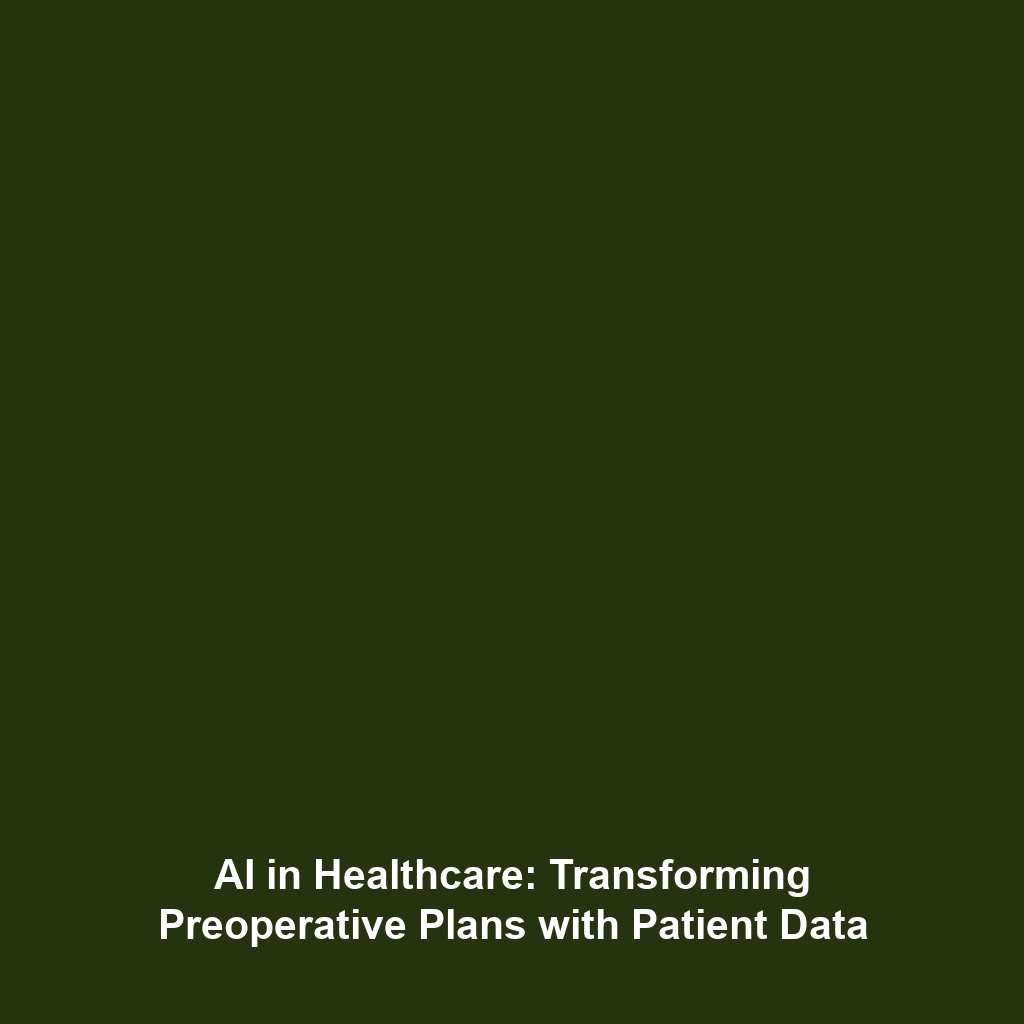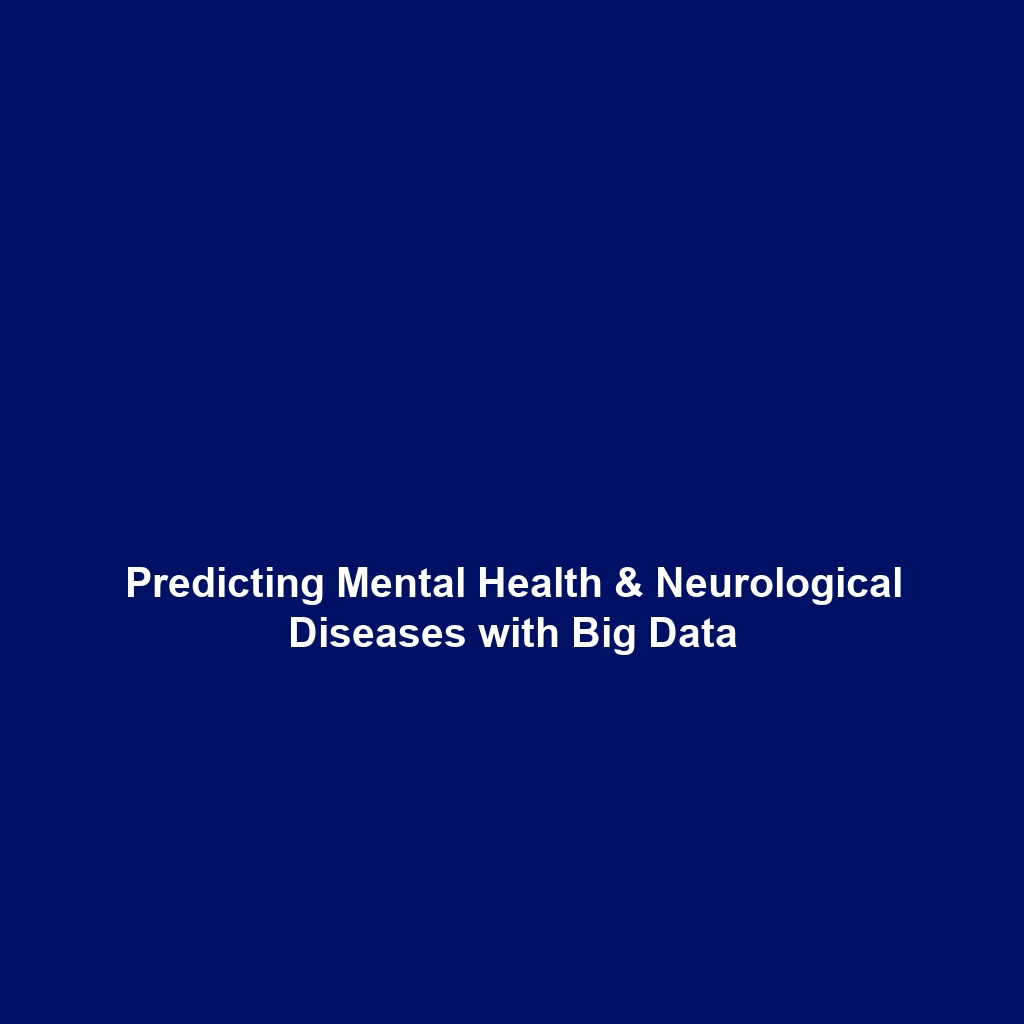How AI Uses Patient Data and Imaging to Create Detailed Preoperative Plans
Introduction
The integration of artificial intelligence (AI) into healthcare is transforming various aspects of patient care, particularly in preoperative planning. By utilizing patient data and imaging, AI systems can generate detailed, individualized surgical plans that improve outcomes and reduce risks. This article delves into how AI employs patient information and imaging technologies to enhance preoperative strategies and the significant implications for the future of AI in healthcare.
Key Concepts
Understanding how AI uses patient data and imaging involves several critical concepts:
Data Integration
AI systems aggregate vast amounts of patient data from electronic health records, imaging results, and historical surgical outcomes. This comprehensive approach enables the creation of tailored preoperative plans.
Machine Learning Algorithms
Machine learning algorithms analyze patterns in the amassed data, helping predict surgical complications and optimizing the use of resources during procedures.
Imaging Technologies
Advanced imaging techniques, such as MRI and CT scans, provide detailed anatomical insights that AI tools can interpret to refine surgical approaches.
Applications and Real-World Uses
AI’s role in creating detailed preoperative plans has numerous real-world applications:
- Orthopedic Surgeries: AI analyzes specific joint images and patient data to assist surgeons in planning knee or hip replacements with high accuracy.
- Oncology: AI algorithms evaluate tumor characteristics from imaging and patient health profiles to optimize cancer surgeries’ precision.
- Cardiovascular Procedures: Comprehensive patient data assessment enhances heart surgery planning, significantly lowering postoperative risks.
Current Challenges
Despite notable advancements, challenges remain in the implementation of AI for preoperative planning:
- Data Privacy Issues: Protecting patient information is paramount, yet integration often poses legal and ethical dilemmas.
- Bias in Algorithms: Historical biases in data can affect AI’s recommendations, leading to inequitable care.
- Integration with Existing Systems: Merging AI applications into current clinical workflows can be complex and time-consuming.
Future Research and Innovations
The future of AI in preoperative planning looks promising, with several ongoing innovations:
- Predictive Analytics: Enhanced predictive models will lead to better patient outcomes by anticipating complications.
- Blockchain for Data Security: Future technologies may utilize blockchain to enhance data security and integrity.
- Real-time Imaging Analysis: Integrating AI with intraoperative imaging systems could provide instant feedback and decision-making tools for surgeons.
Conclusion
In conclusion, AI’s utilization of patient data and imaging to create detailed preoperative plans is a groundbreaking initiative that exemplifies the future potential of healthcare innovation. As challenges are addressed and research evolves, AI will play an increasingly vital role in improving surgical outcomes. For further reading on advancements in AI in healthcare, visit our [AI Innovations in Medicine](#) page or explore our [Patient Data Management](#) resources.


